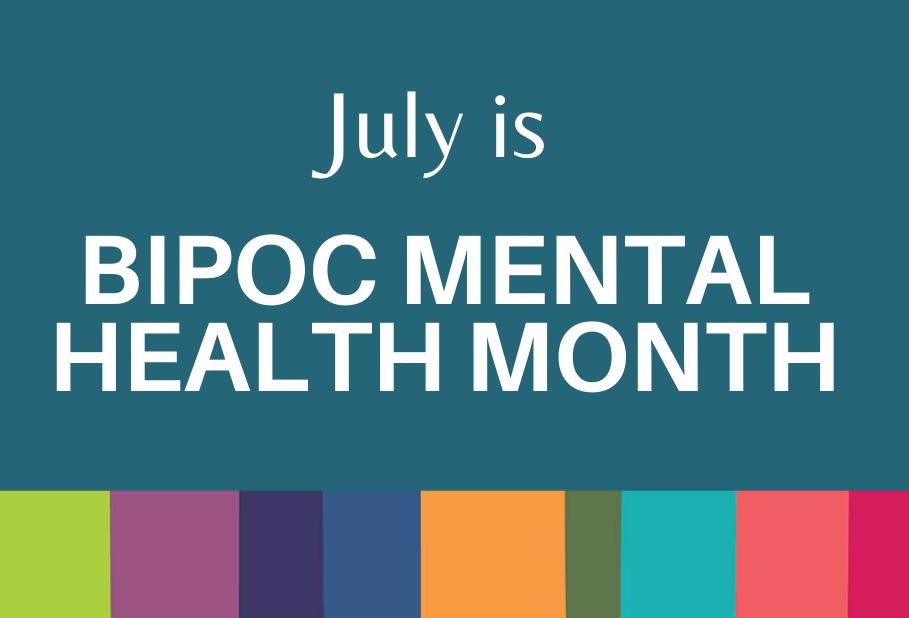Racial and Cultural Barriers

July is Black, Indigenous and People of Color Mental Health Month (also known as National Minority Mental Health Awareness Month). Discrimination; larger family size; low-status, high-stress jobs; poverty; being a single parent and unemployment are all risk factors for depression and studies suggest that racial minority groups experience higher levels of anxiety, depression and other mental health disorders. In addition, non-white individuals face greater barriers to mental health care, including access to public health benefits and/or a lack of insurance to cover the financial cost of services, few bilingual service providers, education levels, immigration status, socioeconomic disparities, stigma surrounding depression and other mental health conditions, and unreliable transportation
Asian-Americans are three times less likely than white Americans to seek help for mental health issues. Research shows that minority college students use mental health services and/or have their conditions properly diagnosed and treated less often than their Caucasian peers. A professor at Boston University found that while all races experience mental health problems at roughly the same rate, among undergraduates with clinically significant symptoms 46 percent of whites, 33 percent of Latinos, 26 percent of African-Americans, and 23 percent of Asians had received therapy in the past year.
Students of color often deny needing help or choose to deal with their symptoms themselves because they worry about being a burden to their family, being judged by other students or being misunderstood by providers who do not understand cultural issues. (Less than 5 percent of America’s mental health professionals are African-American, a figure that is similar for Asians and Hispanics/Latinos.) Filial piety and/or a perceived need to be “strong” prevent many from seeking treatment, while for others mental health struggles can seem like a “luxury” when their families are struggling to survive on a daily basis.
Although African-American adults are 20 percent more likely than their white counterparts to report serious psychological distress, they are less likely to have access to and receive treatment for common mental health issues like depression. According to the National Alliance on Mental Illness, one study showed that 63 percent of African-Americans “believe that a mental health condition is a personal sign of weakness” and a significant number seek help from their faith communities rather than obtaining a medical diagnosis. In a 2018 interview with Jay-Z, Cable News Network’s Van Jones noted that even though “Mental health, PTSD, and trauma is so rampant in our community…as scared as Black folks are of the cops, we’re even more scared of therapists.” To support the mental health and emotional well-being of young people of color, the Steve Fund works with colleges and universities, experts, families, nonprofits, researchers and youth themselves.
Racial and ethnic minority groups in the United States are more likely to use emergency departments for mental health issues and receive lower quality care. The many disparities that exist must be addressed by increasing the recruitment and retention of clinicians of color to create a welcoming atmosphere that reflects America’s cultural and linguistic diversity. If finances are preventing you or a family member from receiving help, visit findtreatment.samhsa.gov or call the National Treatment Referral Helpline at 800-662-HELP (4357), a confidential, free, 24-hour-a-day service (in English and Spanish) providing referrals to community-based organizations, local treatment facilities and support groups. #NotACharacterFlaw